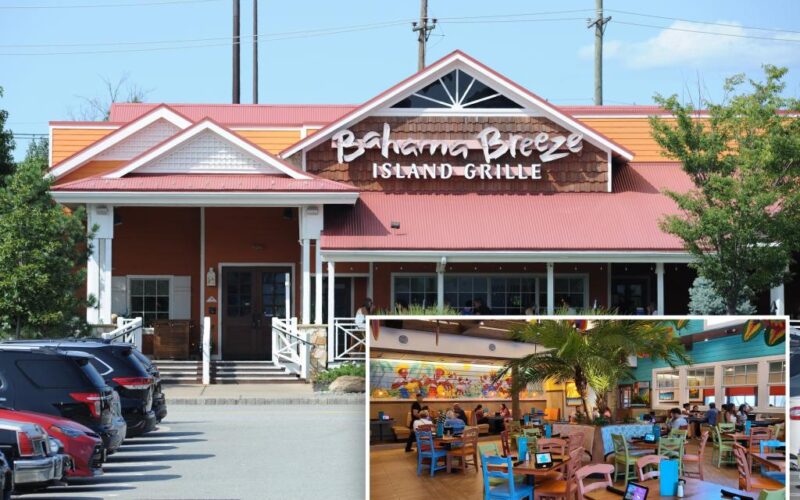Bahama Breeze abruptly closed 15 locations, or more than one-third of its chain, this week as a sharp decline in consumer sentiment hammers fast-casual restaurants.
The popular Caribbean-inspired dining chain shuttered restaurants across the country, including four in New Jersey and the sole location on Long Island.
“We believe this is the right decision because it will allow Bahama Breeze to focus on its highest performing restaurants and strengthen the brand’s overall performance,” owner Darden Restaurants told The Post in a statement.
Closed locations:
- Lake Grove, NY
- Paramus, NJ
- Toms River, NJ
- Wayne, NJ
- Woodbridge, NJ
- Daytona Beach, FL
- Gainesville, FL
- Naples, FL
- Oakland Park, FL
- Sunrise, FL
- Schaumburg, IL
- Tyngsboro, MA
- Troy, MI
- Las Vegas, NV
- Memphis, TN
The company is trying to hire as many impacted employees as possible at nearby Darden-owned restaurants, a spokesperson said. All other staffers will be paid severance, she added.
Bahama Breeze has just 29 restaurants remaining after suffering a sales slump last year, down 7.7%, according to data from restaurant research firm Technomic.
Several other casual dining chains have turned to restaurant closures to stay afloat as shoppers grow more hesitant.
In March, Red Robin announced it’s considering plans to close 70 locations after recording a $32.4 million loss from the “review of underperforming restaurants.”
TGI Fridays closed 12 locations across the US in just one month last October, including three in New York state. The chain also shuttered 35 restaurants across the pond.
And in May, embattled seafood chain Red Lobster abruptly sealed the doors at 50 restaurants nationwide, including more than a dozen in New York and New Jersey.
Consumer sentiment has only worsened, plunging in April to its second-lowest reading on record as Americans fear the effects of President Trump’s trade war, according to a University of Michigan survey.
The outlook for inflation also grew more dire as year-ahead inflation expectations rose to 7.3% from 6.5% last month.
Retail spending slowed in April after customers had rushed to front-load their shopping in March ahead of the tariffs, according to the Commerce Department.








